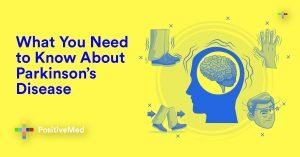
Recent research published in JAMA Network Open highlights the remarkable cardiac benefits of a healthy, plant-based diet compared to a balanced omnivorous diet. The study, conducted with identical twins, adds scientific rigor to the evaluation, offering insights into the impact of genetics and diet on heart health.
Identical Twins and Dietary Comparison
The study involved 22 sets of identical twins, with one twin adhering to a vegan diet and the other to an omnivorous diet. Both diets were meticulously crafted to be heart-healthy, and participants’ cholesterol levels were closely monitored. The use of identical twins enhances the study’s reliability, providing clarity on whether genetics or environmental factors, including diet, play a more significant role in observed changes.
Positive Impact on Cholesterol Levels and Insulin Sensitivity
A key finding was the significant improvement in LDL cholesterol levels among participants following a vegan diet. Within just one month, the average LDL cholesterol dropped notably, showcasing the diet’s rapid positive effects. Additionally, the vegan group experienced a substantial 20% decrease in fasting insulin, a critical factor in diabetes risk.
Dietary Composition and Implementation
During the eight-week trial, participants received meal deliveries for the first four weeks, ensuring adherence to the assigned diets. The omnivorous diet included daily servings of fish, meat, chicken, one egg, and dairy, while the vegan diet omitted all animal products, emphasizing beans and vegetables.
Comparison of LDL Cholesterol Levels
At the study’s commencement, the average baseline LDL cholesterol for the vegan group was 110.7 mg/dL, compared to 118.5 mg/dL for the omnivorous group. By the eighth week, LDL cholesterol levels decreased to approximately 96 mg/dL for the vegan participants, a notable contrast to the 116 mg/dL observed in the omnivorous group.
Additional Observations and Cautionary Notes
While both groups experienced weight loss, the vegan group exhibited slightly greater weight reduction. Importantly, the study underscores that a vegan label alone does not guarantee a heart-healthy diet. Emphasizing the quality of plant-based choices, the study discourages reliance on vegan products that may lack nutritional value.
The findings suggest that incorporating plant-based elements into one’s diet, even without full vegan adoption, can yield notable cardiovascular benefits. The absence of saturated animal fat in vegan diets, coupled with the fiber-rich nature of many plant-based foods, contributes to improved heart health. The study’s lead researcher encourages individuals to explore more vegan meals, advocating for a balanced approach to enhance overall well-being.





